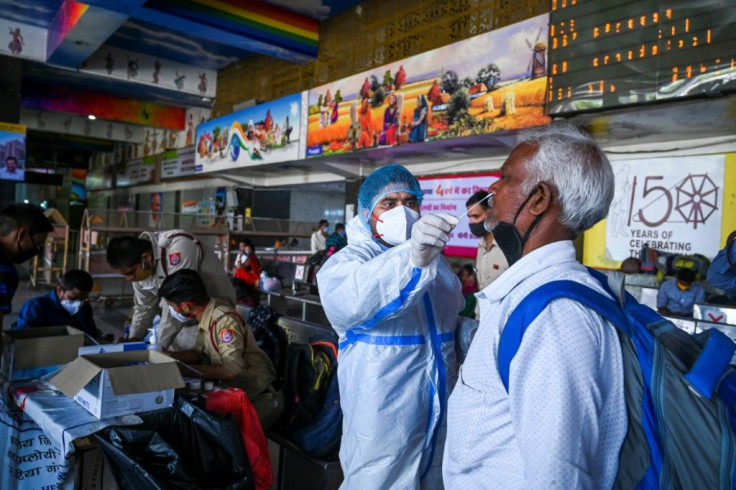New 'Double Mutant' COVID-19 Strain From India Found In San Francisco
KEY POINTS
- A new variant first detected in India was found in the Bay Area
- Researchers at the Stanford Clinical Virology Lab found it through genomic sequencing
- It is unclear whether the new variant is more infectious or resistant to COVID-19 vaccines
A new variant of the coronavirus, first detected in India, has been found in a patient in the San Francisco Bay Area, researchers at Stanford University said Sunday.
The Stanford Clinical Virology Lab identified the first case of the India coronavirus variant in Santa Clara County after researchers performed a genomic sequencing, revealed Lisa Kim, a spokesperson for Stanford Health Care.
Researchers are still screening seven other presumptive cases. The team at the Stanford Virology Lab refused to reveal the location of the confirmed case.
“We believe this is the first described case with this variant in the United States,” Kim said in an emailed statement to NBC News.
The variant, which Indian media has dubbed “Double Mutant,” carries two mutations that allow it to latch itself onto cells and transmit at a faster rate. However, researchers have not yet determined whether the new variant is more infectious or is resistant to the antibodies in COVID-19 vaccines.
Dr. Peter Chin-Hong, an infectious disease expert and medical educator at the University of California San Francisco (UCSF), believes the variant could be more infectious considering it accounts for 20% of the cases in Maharashtra, India.
“It’s just less forgiving,” Dr. Chin-Hong told KTVU. “With the Indian variant, you get the very, very similar symptoms. The main difference is that it’s much easier to transmit.”
Chin-Hong said it is too early to determine whether the variant is more resistant to vaccines or causes reinfections. He noted that one of the variant’s mutations was similar to ones found in COVID-19 variants first detected in Brazil, South Africa and California.
“This Indian variant contains two mutations in the same virus for the first time, previously seen on separate variants,” he said. “Since we know that the domain affected is the part that the virus uses to enter the body, and that the California variant is already potentially more resistant to some vaccine antibodies, it seems to reason that there is a chance that the Indian variant may do that too.”
The variant was first detected last month by Indian health officials. The cases in India had been decreasing before the country saw a spike. More than 47,000 new infections were detected within 24 hours in late March.

© Copyright IBTimes 2024. All rights reserved.






















